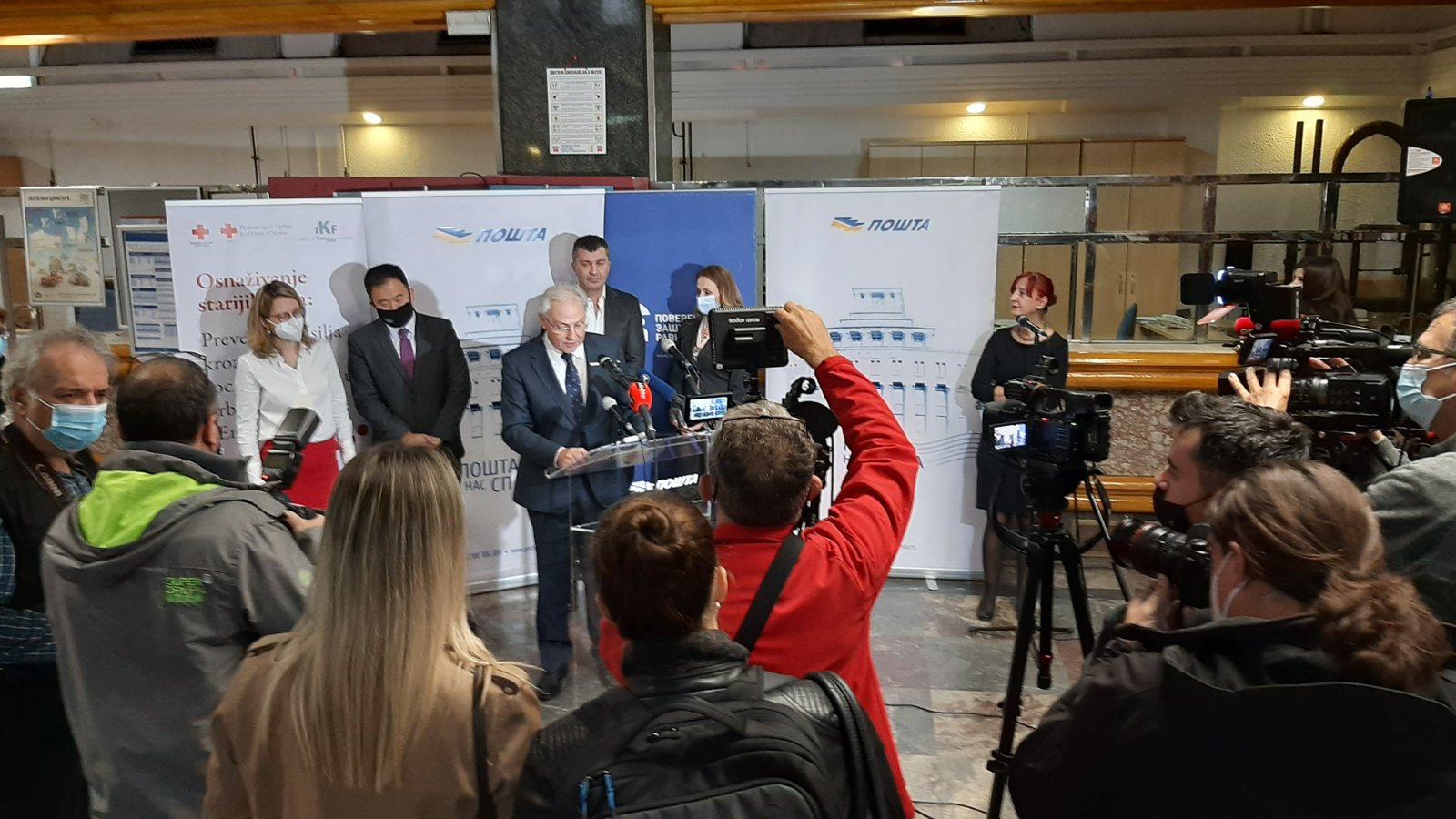Red Cross of Serbia campaign on the occasion of October 1, International Day of Older Persons

On the occasion of October 1, the International Day of Older Persons the Red Cross of Serbia and its partners launched a campaign to draw attention to an important issue that is little talked about and insufficiently known. This problem is called discrimination and violence against older persons. With this campaign, we contribute to the prevention and protection of older persons in Serbia. Through the short film "Open Your Eyes" provided to us by the Australian Human Rights Commission, we are also becoming part of the global struggle for dignified ageing. The film is part of the project "Empowering older women: preventing violence through changing social norms in Serbia and Austria (EmPreV)", which is implemented with the support of the European Union, Austrian Development Agency and the Austrian Red Cross.
The campaign itself, in addition to the film that will be broadcast for thirty days on screens in 17 post offices, also includes the branding of public transport vehicles in five cities. In addition to the European Union and Austrian Development Agency, the campaign was supported by the Commissioner for the Protection of Equality, the Ministry of the Interior, the Ministry of Labour, Employment, Veteran and Social Affairs, the United Nations Population Fund and the Australian Embassy. The film "Open Your Eyes" is a good example of cooperation of all important factors in the community in raising public awareness about the prevention of violence against older persons.
At the event organized in the building of the Main Post Office in Belgrade, on October 1, the short film "Open Your Eyes" was presented in the presence of older volunteers, but also various partners who support this campaign. Prof. Dr Dragan Radovanović, President of the Red Cross of Serbia spoke about the ongoing work of the Red Cross on the prevention of violence against older persons and the current project aimed at raising awareness about violence against older women. Brankica Janković, Commissioner for the Protection of Equality, spoke about discrimination against older persons in our society, which is frequently a prelude to violence. The Austrian Deputy Ambassador to Belgrade, Karin Traunmüller, spoke about the EmPreV project and cooperation between Serbia and Austria on the prevention of violence against older women, and the Australian Deputy Ambassador, Liang Zeng, spoke about the importance of publicly promoting signs of violence against older persons so that the broadest possible public is able to recognize and report violence. Acting Director of the Post of Serbia Zoran Djordjevic emphasized that it is important for the Post to be part of such a campaign because the post offices are important places for older persons and that the broadcasting of the film will be extended after thirty days due to the importance of the topic. The whole event was moderated by Natasa Todorovic, an expert associate of the Red Cross of Serbia and the coordinator of the EmPreV project.
Given that the Serbian Red Cross is constantly on the ground and that we take into account what older persons say, the Serbian Post office is a very important partner in this case because an earlier survey on digital inclusion as well as conversations with lonely older persons showed that older persons in Serbia prefer to pay their bills in persons, in post offices, rather than to do it online, and in most cases the reason is that for them it is some form of social inclusion. With this film, we want to draw the attention of older persons, but also of the entire public to recognize and report violence, and that a dignified older age is what each of us wants for ourselves, so we must be responsible and make it possible for others. We are here together for a dignified ageing without discrimination and violence. And for us in the Red Cross of Serbia, and I also for other partners, October 1 is every day, every day we on the one hand help those older persons who need help, and on the other hand we get help from older persons and that is the essence: older persons are not passive recipients of help, but are also active members of society, and violence should not be a part of their lives.
